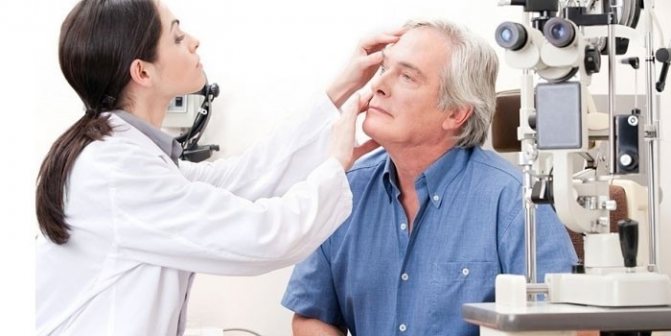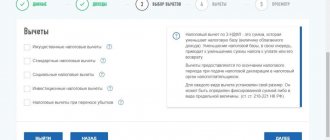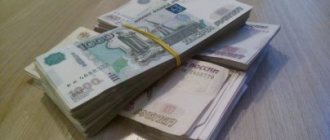With the onset of old age, a person objectively needs qualified medical care to a greater extent. To achieve this, the state provides not only a number of benefits for free (or partially compensated) access to medical services, but also the possibility of obtaining a tax refund in case of incurring costs for these purposes. In this material we will look at the specifics of receiving such a tax refund in relation to a specific category of Russian citizens - pensioners.
Is a pensioner entitled to a tax deduction for treatment?
Tax legislation (in particular, Article 219 of the Tax Code of the Russian Federation) provides that the amount of income tax for an individual is calculated taking into account the amount of tax deduction. One of these is the social tax deduction, one of the elements of which is a citizen’s expenses for medical services and medicines.
At the same time, the legislator has not established any restrictions regarding the category of recipient of such a deduction, which indicates that a pensioner can also apply for it. But for this, certain conditions must be met.
Working
An elderly person who carries out labor activities under a contract (as well as a citizen who provides services or performs work under a corresponding civil law contract) is a payer of personal income tax.
He himself does not pay this fee, but his employers do it for him as tax agents. In such cases, an individual has the right to claim a refund for medical services.
Attention! Only a personal income tax payer has the right to receive a deduction for treatment, since the payment involves a partial (or full) refund of the tax paid to the state.
Not working
The absence of an employment contract does not clearly indicate the impossibility of obtaining compensation for part of the costs of medical services and medications . The law connects this right with the payment of personal income tax, and not with the existence of an employment contract.
This means that a non-working pensioner can also receive a deduction, but only on the condition that during the year he entered into legal relations, as a result of which he paid income tax. So, for example, a non-working elderly person may be the recipient of a gift from a stranger, from whom he is obliged to pay personal income tax.
Another way to get a refund is to arrange payment for the services of a medical institution through working close relatives. According to the law, the right to deduction arises not only for oneself, but also for spouses, parents and minor children.
It is also useful to read: Is it possible to get a tax deduction for the purchase of an apartment for a non-working pensioner?
Who is eligible for deductions?
State support is provided to a citizen-taxpayer who, at the expense of his personal funds, made insurance contributions or received:
- treatment services (it does not matter whether they were provided to the applicant or his family members, including parents);
- medications prescribed by a doctor.
Tax deductions for treatment for pensioners are provided on similar grounds. However, when applying for it, it is worth keeping in mind that income in the form of pensions and other benefits is not taxed, and it will be impossible to obtain a deduction without wages or other taxable income. These may include funds received from renting out property, selling it, etc.
Tax deductions for retirees for medical treatment can be paid to their children or spouses. But it is worth understanding that, unlike a deduction for education, funds cannot be sent to pensioners who paid for medical services provided to a brother or sister.
The amount of social deduction is limited to 120 thousand rubles. But if medical services can be classified as expensive, the pensioner can count on compensation of his own funds in full.
The code in the medical certificate, entered when it is issued, will allow you to determine the degree of high cost of treatment. The number 2 in it will indicate that it is possible to issue a tax deduction, the number 1 will indicate that the treatment was carried out without high costs.
The question also often arises whether a pensioner has the right to receive a tax deduction or not if expensive treatment was provided to him free of charge, and he purchased consumables for this independently and with personal funds. This issue has not been resolved at the legislative level, and letters from the Federal Tax Service of Russia are only advisory in nature.
Thus, the key issue for registering a state benefit is the availability of taxable income, the ability of medical institutions to treat this category of citizens, pensions, while their size and duration of payment will not matter, since they are not a source for calculating personal income tax.
What part of the amount for treatment can a pensioner return?
The Tax Code establishes a citizen’s right to a deduction in the amount of expenses actually incurred for treatment and the purchase of medicines. However, the legislator sets the maximum amount of deduction per tax period.
Reference! In accordance with Art. 216 of the Tax Code, the period for calculating personal income tax is determined by the calendar year (for example, 2020).
The specified maximum amount is set at 120,000 rubles, but not only for treatment, but for almost all types of social deductions, namely:
- paying for your own training;
- contributions to non-state pension provision;
- additional contributions to funded pension;
- costs of undergoing an independent assessment of your qualifications.
This does not take into account the costs of educating children (deduction of no more than 50,000 rubles) and expensive medical services (deduction for which is provided based on actual costs incurred).
Do not forget that the indicated amounts are only deduction amounts, i.e. the amount of income that is not subject to income tax. Since the rate of this government fee is 13%, you can only claim a refund of 13% of the expenses incurred or the maximum established amount.
What expenses are paid by the state?
In general terms, the Tax Code of the Russian Federation establishes the following types of expenses, which are accepted as a deduction for personal income tax:
- medical services of health care institutions;
- services provided by individual entrepreneurs engaged in medical activities;
- the cost of medications that were prescribed to a citizen by the attending physician and purchased by him with his own money.
The list of services is determined by Government Decree No. 201 dated March 19, 2001 and includes:
- emergency medical care;
- outpatient services;
- inpatient care;
- Spa treatment;
- health education.
For more specific types of medical services, see Section Q of the All-Russian Classification of Products by Type of Economic Activity.
The same Resolution 201 previously determined the list of medicines, the purchase of which also provides the right to a refund of paid personal income tax. It became invalid due to the publication of a government act. It is worth assuming that any drug prescribed by a doctor and purchased with your own funds is subject to the deduction rule.
Since for expensive types of treatment there is a special rule regarding the acceptance of all expenses as a deduction, this act of the Government also defines this list.
These types of treatment in medical organizations include:
- various types of surgical treatment of severe forms of diseases;
- joint prosthetics and operations to restore them;
- transplantation;
- treatment of severe forms of certain diseases;
- combined treatment of cancer, diabetes, hereditary diseases, etc.;
- treatment of burns of at least 30% of the body;
- hemodialysis;
- nursing premature babies up to 1.5 kg;
- in vitro fertilization.
Reference! In total, the list contains 27 items, the last of which (IVF) was introduced by a separate act already in 2007.
How to get a deduction for treatment and what documents are needed
As a general rule, in order to receive a deduction for the treatment of a personal income tax refund, a citizen at the end of the calendar year must send a declaration in form 3-NDFL to the tax office at the place of registration. It indicates the amounts of income and expenses incurred.
In addition, you need to attach a package of other documents, namely:
- agreement with a medical institution;
- certificate of payment for procedures;
- documents confirming expenses (checks or statements);
- papers confirming paid income tax (certificate 2-NDFL).
After checking the document, the tax authority makes a decision on the refund, and the funds are transferred to the bank account specified by the citizen.
There is also another way to receive a deduction before the end of the tax period (calendar year). To do this, the taxpayer must contact the tax service with a request to confirm the right to a tax deduction.
After receiving confirmation in the form of a notification, he needs to submit a free-form application to his employer. The employer will not withhold personal income tax from future payroll payments.
There is numerous judicial practice confirming the right of an employee, by decision of the employer, to return all personal income tax paid since the beginning of the year as a tax deduction. This also requires a notification from the tax office, after which the employer makes a decision on the refund of over-withheld income tax.
Example of a refund for sanatorium treatment
Let's look at the size of the deduction and the amount of compensation due using a specific example:
Citizen Ivanov, being a pensioner, continues his work and has a salary of 360,000 rubles in 2021. From this amount, the employer transferred personal income tax for him (let’s assume that standard tax deductions were not applied) 360,000 * 13% = 46,800 rubles.
In the same year, citizen Ivanov had some health problems, and he was forced to agree to a paid operation (let’s assume that it is not part of an expensive type of treatment) costing 100,000 rubles. After the operation, the attending physician prescribed Ivanov sanatorium treatment for 3 weeks at a cost of 40,000 rubles.
According to the law for 2021, Ivanov can use a tax deduction in the amount of expenses actually incurred, but not more than 120,000 rubles. So, he can claim a full deduction for the operation and a deduction of 20,000 for sanatorium treatment (or 80 and 40 thousand, which is not important). Accordingly, the refund of overpaid personal income tax will be 120,000 * 13% = 15,600 rubles. Since the income tax he paid exceeds this amount, he will receive it in full.
It is also useful to read: Registration of a free trip to a sanatorium for a pensioner
How to get your money back for ophthalmological treatment
As a person ages, vision problems appear. It is not always possible to correct an illness with glasses or lenses, so a pensioner often needs surgery. Ophthalmological procedures are carried out in public and private medical institutions free of charge (when placed on a waiting list) or for money (at any time).
Read more: How to send an employee on maternity leave 2018
By agreeing to paid medical services, an elderly person saves time, but is forced to find funds for surgery. It is legally determined that pensioners are entitled to compensation for paid surgical intervention. Partial or full reimbursement of costs occurs through:
- providing a tax deduction (exemption from income tax or its refund);
- contacting social security authorities with an application for one-time financial assistance.

Working pensioner
A tax deduction for medicines or surgery is only available to pensioners who continue to work or were working in the year when the eye surgery was performed. The maximum period for receiving compensation is 3 years from the date of surgery. For example, a pensioner was officially employed in 2021, and this year he had eye surgery. He will be able to receive the deduction during 2021, 2021 or 2021.
Officially employed pensioners pay personal income tax, the amount of which is 13% of earnings. There is no tax levied on pensions and other social benefits through the Pension Fund or social security. The deduction is due to all working individuals on the following grounds:
- for studying;
- after purchasing a home;
- on mortgage;
- for life insurance;
- for treatment.
For a non-working pensioner
A tax deduction for eye surgery is not provided to pensioners who have completely stopped official work. You can return personal income tax through your son, daughter or working spouse, but grandchildren cannot apply for compensation when paying for the operation of their grandparents.
According to regional legislation, full or partial monetary compensation for eye surgery can be paid to pensioners through social security authorities. To do this, you need to contact the territorial office and fill out a corresponding application. After reviewing the documents provided, a decision will be made. For example, in Moscow financial support is provided on the following grounds:
- Payment for expensive medical services for vital reasons, if they are not provided free of charge.
- Purchasing expensive drugs, medical supplies or materials. Disabled people can use this opportunity if they have not formalized a waiver of social services, and the medications are not included in the List for Medical Use.
Can pensioners receive a deduction for medical expenses for children?
The right to receive a deduction in the amount of expenses incurred for the treatment of a child is directly enshrined in the Tax Code of the Russian Federation (clause 3, clause 1, article 219).
It is established for persons under the age of majority (18 years old) in the following categories:
- native children;
- adopted children;
- wards (if pensioners are guardians or trustees).
It should not be forgotten that in this case a pensioner can receive a deduction only if there is taxable income during this calendar year, be it wages, remuneration under civil contracts, donations, inheritance, etc.
In conclusion, let us reiterate the main points:
- a pensioner can equally qualify for a social tax deduction related to the payment of medical services or medications;
- such a right accrues to him only if he is a payer of personal income tax (otherwise there is simply nothing to return);
- in absolute figures, the refund will be 13% of the amount of actual expenses incurred or the maximum established amount (120,000 rubles in combination with some other types of social deductions);
- refund of the paid fee is allowed not only for oneself, but also for close relatives, which include children (including adopted children), wards under 18 years of age, spouses and parents;
- obtaining a deduction requires presenting a tax return or contacting the employer with a notification from the tax authority about the existence of the right to a deduction.
Reimbursement for surgery expenses
Employed people and working pensioners can return part of the money.
Basic requirements for receiving compensation
Based on Decree No. 201, in 2021, compensation applies to surgery performed in a city clinic, inpatient department, sanatorium or by emergency personnel. Paragraph 5 pp. 3 p. 1 art. 219 of the Tax Code notes the need for medical organizations to have a license issued by the Russian government.
That is, a deduction is possible only if you contact domestic institutions that provide standard and expensive services. The latter include plastic surgery of the body and face, prosthetics, IVF, organ transplantation, treatment of cancer and diabetes. A citizen can pay for the operation for his wife, parents, children and himself.
Reimbursement period for surgery costs
The money will arrive in your bank account in 2-4 weeks, but only if the tax authorities give a positive response. Documents are verified for about 3 months.
The amount of social tax deduction for the operation
The costs for which a refund is issued are limited to 120 thousand rubles. That is, a maximum of 15.6 thousand rubles can be credited to the taxpayer’s bank account. When receiving expensive services, you can return 13% of all money, but only within the limits of the transferred income tax.
Advice! The right to deduct for expensive medical care is granted based on the tax transaction code.
Documents required for social tax deduction
How can I get government compensation for an expensive paid operation? Collect and submit documents to the Federal Tax Service. Depending on whether a person is employed, disabled or retired, the list of papers differs. However, there are also mandatory documents:
- an agreement on the provision of medical services between a person and an institution;
- act of completion of work;
- certificate 2-NDFL;
- checks and receipts confirming the fact of payment;
- certificate of payment from the medical organization;
- declaration 3-NDFL indicating expenses;
- documents confirming relationship.
Advice! When purchasing medications, provide payment receipts and the original prescription.
Methods for submitting documents to receive a deduction
Options for submitting documentation, their convenience and disadvantages are discussed in the table.
| Feeding method | Benefits | Minuses |
| Federal Tax Service website | Quick login through your personal account | Temporary login and password are obtained only in person at the inspection |
| Through the employer | Can be submitted at any time during the current year | Tax deduction is calculated for the previous year |
| State Services Portal | Quick registration | Providing as much information as possible |
| Personally at the Federal Tax Service | View documents upon transfer, quick information about inaccuracies | Reception only on weekdays |
| Post office | Convenient if the branch is near your home | If there is an error, the papers will reach the recipient in 2-3 months |
Receipt of deduction by husband for wife
Based on Art. 34 of the Family Code, pensions, material benefits, including compensation and non-permanent payments belong to the common property of the spouses. For this reason, the husband has the right to receive a deduction.
Receiving a deduction for the operation together with other social deductions
If there are cumulative situations in one calendar year, the amount of costs cannot exceed 120 thousand rubles.
How many times can a taxpayer take advantage of the social tax deduction?
Russians have the right to receive an annual deduction. The state sets a certain limit, but this rule does not apply to deductions for expensive procedures.
Return deadlines
Verification of documents by the Federal Tax Service takes 3 months. You can receive compensation within a maximum of 4 weeks. Thus, the tax deduction will be credited to your account after 4 months. If there are errors in the documentation, the process is delayed for the same amount of time.
Read more: How to get a subsidy for agriculture 2018
Reasons for refusal to receive a tax deduction
Compensation is not provided in the following cases:
- not all documents have been submitted;
- errors in the 3-NDFL declaration;
- income tax was not transferred for the reporting period;
- the funds limit has been reached;
- the documentation was not transferred to the place of registration.
Advice! When submitting papers to the Federal Tax Service, you may be asked for originals; their absence may be one of the reasons for refusal.
In 2021, a tax deduction for treatment or surgery performed is provided only to officially employed persons. Pensioners, labor veterans or disabled people can receive a number of services free of charge. Women on maternity leave and the unemployed are not entitled to a deduction.
We describe typical ways to resolve legal issues, but each case is unique and requires individual legal assistance.
To quickly resolve your problem, we recommend contacting qualified lawyers on our website.






